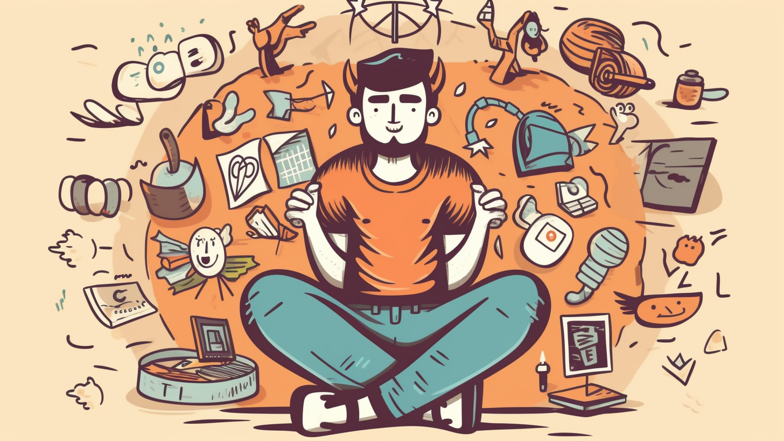
Mindfulness techniques
One of the most effective stress management tools is mindfulness, which involves paying attention to the present moment without judgment. Mindfulness-based stress reduction (MBSR) is a program that teaches individuals how to use mindfulness to reduce stress and improve their well-being. MBSR has been shown to increase self-awareness, reduce negative thoughts and emotions, and improve physical health.
One of the most common mindfulness techniques is meditation, which involves sitting quietly and focusing on your breath or a mantra. Research shows that meditation can reduce symptoms of anxiety and depression, improve attention and concentration, and increase feelings of well-being. Other mindfulness techniques include yoga, tai chi, and qigong, which combine physical movement with mindful awareness.
Exercise
Exercise is another effective stress management tool because it releases endorphins, which are natural mood-boosters. Regular exercise can also help to reduce symptoms of anxiety and depression, improve sleep, and increase energy levels. Exercise doesn't have to be strenuous; even moderate activity, such as walking, cycling, or swimming, can make a big difference.
Resistance training is also effective because it can help to build muscle mass, increase bone density, and improve metabolic function. Resistance training involves using weights or resistance bands to work your muscles. This can be done at a gym, or at home with basic equipment. Resistance training can be particularly beneficial for older adults, who may be at risk of sarcopenia (age-related muscle loss).
Nutrition
Nutrition plays a key role in stress management because our bodies need certain nutrients to function properly. A balanced diet that includes plenty of fruits, vegetables, whole grains, lean protein, and healthy fats can help to reduce inflammation, improve gut health, and boost our immune system. Eating a healthy diet can also help to reduce symptoms of anxiety and depression.
Some nutrients that are particularly important for stress management include magnesium, vitamin D, and omega-3 fatty acids. Magnesium is a mineral that helps to regulate the nervous system and reduce muscle tension. Foods that are high in magnesium include leafy greens, nuts and seeds, whole grains, and legumes. Vitamin D is a vitamin that helps to regulate mood and boost the immune system. The best source of vitamin D is sunlight, but it can also be found in fatty fish, egg yolks, and fortified foods. Omega-3 fatty acids are healthy fats that have been shown to reduce inflammation, improve brain function, and protect against heart disease. The best source of omega-3s is fatty fish, but they can also be found in flaxseed, chia seeds, and walnuts.
Breathing techniques
Breathing techniques are another effective stress management tool because they can help to regulate the autonomic nervous system and reduce symptoms of stress. Deep breathing, also known as diaphragmatic breathing, involves taking slow, deep breaths from your belly rather than your chest. This helps to slow down your heart rate and relax your muscles. Box breathing is another technique that involves inhaling for four counts, holding for four counts, exhaling for four counts, and holding for four counts. This can be repeated several times to reduce feelings of stress and anxiety.
Sleep
Sleep is essential for stress management because it allows our bodies to recover and regenerate. Lack of sleep can lead to physical and mental health problems, including depression, anxiety, and chronic fatigue. Quality sleep is just as important as quantity; getting seven to nine hours of uninterrupted sleep per night is recommended for most adults.
To improve the quality of your sleep, it's important to establish a consistent sleep routine. This includes going to bed and waking up at the same time each day, avoiding caffeine and alcohol before bedtime, and creating a sleep-conducive environment that is dark, quiet, and cool. Relaxation techniques, such as deep breathing or meditation, can also help to promote relaxation and improve the quality of your sleep.
Social support
Social support is another important stress management tool because it provides emotional and practical support during times of stress. Social support can include friends, family, colleagues, or support groups. Talking to someone who understands your situation can help to reduce feelings of isolation and increase feelings of belonging. Socializing with others can also help to reduce stress and improve mood.
Conclusion
Stress management is essential for achieving a healthy, balanced lifestyle. Mindfulness techniques, exercise, nutrition, breathing techniques, sleep, and social support are all effective ways to manage stress and improve your overall well-being. By incorporating these tools into your daily routine, you can learn to cope with stress in a positive and productive way.
Comments
Post a Comment